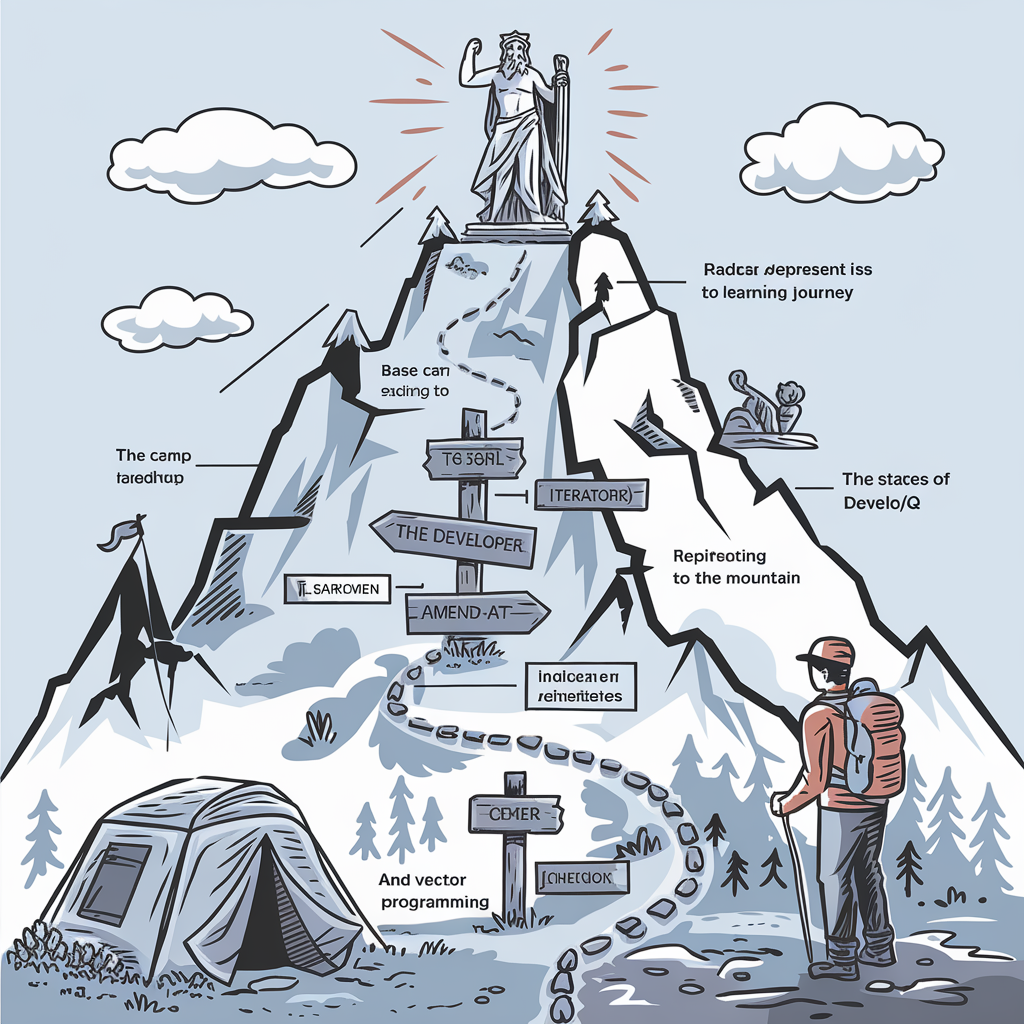Choosing the Right KDB/Q Study Plan
As you likely already know, KDB/Q is incredibly powerful and versatile, especially when it comes to big data, time series analysis, and number crunching. It’s important to have a clear idea of what you want to use KDB/Q for before choosing your study plan. While there's no harm in studying KDB/Q in-depth, even if you end up not using it as much as expected, the knowledge will still benefit you—shaping your mindset and helping you approach problems differently. That said, I understand that time is valuable, so a brief overview of the various roles should help you pick the study plan that suits you best.

Since KDB/Q originated in the financial industry (you can read more about its history here), it’s no surprise that its primary users are Investment Banks, Hedge Funds (including derivatives like Crypto Funds), and Market Makers or Exchanges. The roles described below can be found across these types of institutions, though the job titles may vary slightly from firm to firm. Generally speaking, KDB/Q users fall into the categories outlined below.
Regardless of the study plan you choose, it's crucial to grasp the fundamentals of KDB/Q to successfully navigate your learning journey. That’s why I strongly recommend everyone starting with KDB/Q to begin with our KDB/Q Pre-School. This will provide a solid foundation for what's ahead and make your KDB/Q learning path much smoother. I also encourage everyone to subscribe to my newsletter to stay updated with my latest blog posts. It’s completely free, and you can sign up here.
The Full-Time KDB/Q Core Developer
The Full-Time KDB/Q Core Developer is the most KDB/Q-intensive role of all. In this position, your primary focus will be on KDB/Q, with only occasional interactions with other programming languages or technologies when necessary. Your key responsibilities include designing, developing, and implementing a KDB/Q Tick architecture (if one isn’t already in place), maintaining and expanding it, and adding features as requested by the business. You'll also handle onboarding new data, defining and updating table schemas, and developing APIs to expose, analyze, manipulate, and transform raw data. In the absence of a Business Analyst, you may need to interact directly with the business to gather requirements, provide feedback, and offer support across levels, from basic troubleshooting to more advanced technical issues.
As a junior Full-Time KDB/Q developer, you'll start with simpler tasks, such as making small changes to existing code, schemas, or APIs. Over time, you'll take on more complex responsibilities, like developing new APIs or features, creating business reports for teams or users, and building or optimizing services. Once you reach a senior developer role, you'll be involved in architectural decisions and design, refactoring or re-implementing existing platforms, or—if you're fortunate—working on a Greenfield project from the ground up.
The primary responsibility of a Full-Time KDB/Q developer is to develop, maintain, and support the KDB/Q platform for your team or company, providing a data warehouse and pipeline for surrounding teams. A key skill is understanding the data you capture and manage. In larger companies, there may be a core data team overseeing the firm-wide data platform, with smaller KDB/Q teams maintaining supporting KDB/Q Tick stacks. In smaller firms, one team might handle all of these tasks. Ultimately, this is the most technical role with the most extensive exposure to KDB/Q platform development. If you're aiming to become a Full-Time KDB/Q developer, the Aspiring KDB/Q Developers: Your Path to Mastery study path is the right fit for you. Click here to find out more.
The Mainstream, Non-KDB/Q Developer
You’re a mainstream, non-KDB/Q developer with experience in other programming languages like Java, C++, Python, or similar. You’re not primarily a KDB/Q developer, and unless you're considering transitioning into that role (a possibility once you discover the beauty and power of KDB/Q), your interaction with KDB/Q is likely occasional. Your main responsibilities may involve streaming data into a KDB/Q platform, subscribing to real-time updates from it, or querying data stored within the platform. You might also build interfaces to interact with KDB/Q. If this sounds like you, then the Non-KDB/Q Developers: Transitioning to the Power of KDB/Q study track is the perfect fit.
Math Wizzards - Quants and Quant Devs
As a Quant or Quant Dev, you primarily work on the business side, developing pricing models, trade cost analysis, price impact analysis, and similar tasks. Your background is typically numerical, often including degrees in mathematics, statistics, or physics, with many holding PhDs. Sometimes, you may have a computer science or software engineering background, but more often, you let the "tech guys" handle the development work. Since KDB/Q draws heavy inspiration from APL, a programming language designed for mathematicians, Quants generally find it easy to pick up KDB/Q. Often unfamiliar with traditional software development practices, they aren’t tied down by the loop mindset common in mainstream languages. To develop effective business logic or strategies for your team, it's essential to first understand the data. This is where KDB/Q’s in-built query language, Q-SQL, comes into play.
Quant Devs, on the other hand, may find it more challenging to adjust to KDB/Q’s vector/array programming model but will eventually adapt. If you’re a Quant, mastering KDB/Q will give you a competitive advantage. Its power and speed, combined with an efficient, rapid development cycle, will allow you to deliver results faster and more efficiently than in any other language. If you're a Quant or Quant Dev looking to learn KDB/Q, the Quants and Quant Devs: Unlocking the Full Potential of KDB/Q study path is tailored for you.
Data and Business Analysts: Insights from your Data
You're a data and/or business analyst tasked with making sense of the data your company gathers. Often, you serve as a bridge between Quants and Software or KDB/Q developers. While your background may be technical, it doesn't have to be. To analyze your data effectively, it's essential to know how to query it efficiently to extract the insights you need. If you're a Data or Business Analyst, the Data & Business Analysts: Efficient Querying with KDB/Q is the right choice for you.
Managers - KDB/Q What?!?
As a manager, it's completely understandable if you don’t come from a tech background—after all, your expertise lies in other critical areas, and your days of hands-on development may be behind you. However, you don't want to feel like an "outsider" when the "cool" kids start discussing the latest KDB/Q trends. Even though coding and troubleshooting bugs may not be part of your daily routine, it's incredibly useful to understand what KDB/Q is, how it's used, why it’s important, and the advantages it offers. Knowing what a KDB/Q platform entails can provide valuable insights. And if you're feeling adventurous, you might even want to spin up a KDB/Q process to query some data yourself and gather intel.
If you're managing a team that works with KDB/Q—whether directly or indirectly—you’ll benefit from staying ahead of the curve, familiarizing yourself with the buzzwords, and impressing your team with your knowledge. If this sounds like something you'd like to dive into, the KDB/Q for Managers: Demystifying Data for Non-Tech Leaders learning path is made for you.
